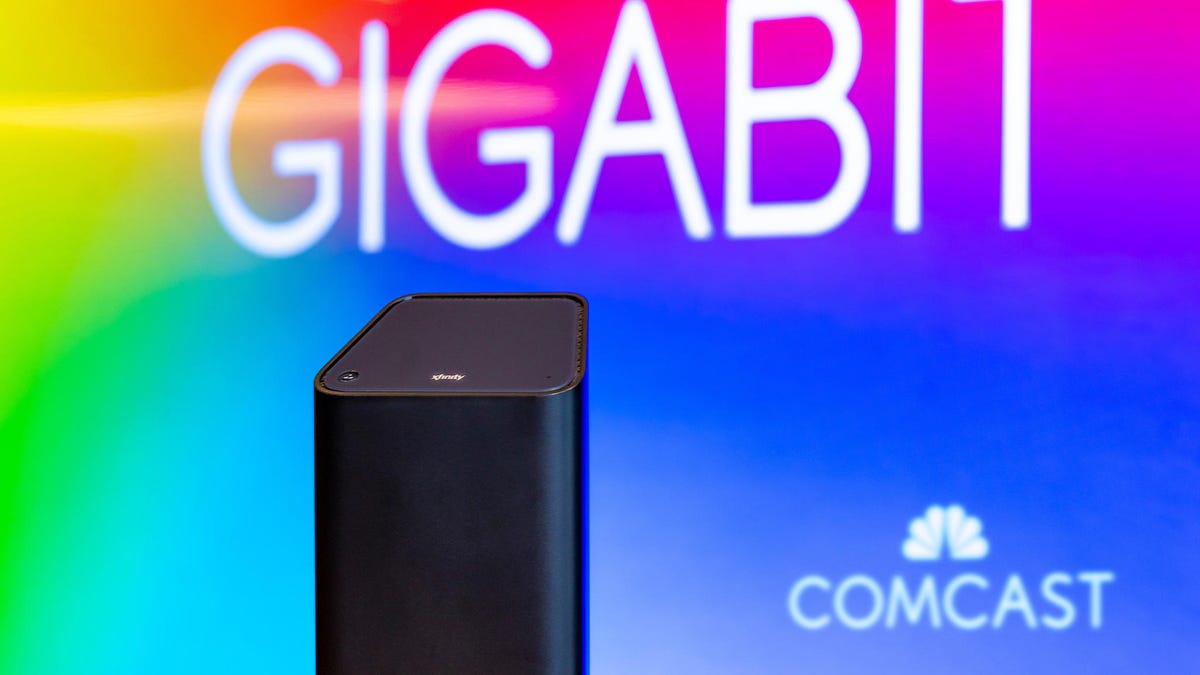5G? We'll double it! Cable companies push '10G' at CES
They see your 5G and raise you another 5G. It's just not the G you're looking for.

Comcast, the biggest cable company in the US, offers internet speeds of one gigabit per second. The industry announced an initiative to widen availability to 10 gigabit-per-second service to homes.
Amid all the hype for 5G cellular tech at CES this year, the cable industry unveiled its own push for better internet speeds here too. They call it [raises eyebrows] "10G."
After all, if 5G is so great, can you imagine what 10G can do?
5G is the talk of Las Vegas as CES 2019 again. This year, however, 5G's high-speed wireless networks are actually within eyeshot. Last year, Verizon launched its (sort of) 5G-based home broadband service and AT&T already rolled out 5G service in select markets. More cities will get 5G this year. The technology promises massive speed boosts -- think of downloading a season of Game of Thrones onto your phone in minutes -- as well as the potential for new developments, like streaming augmented reality.
Meanwhile, cable companies, which are stuck with physical connections, don't want to get left out of the 5G excitement. That's even if their G isn't the G that everyone is talking about.
The cable industry's plans to unveil a "10G" network transformation that will lead to 10 gigabits-per-second broadband service into homes in the coming years. Calling the initiative "the next great leap for broadband," a coalition of international cable industry groups said 10G lab trials are underway and will move to field trials beginning next year.
"With groundbreaking, scalable capacity and speeds, the 10G platform is the wired network of the future that will power the digital experiences and imaginations of consumers for years to come," Michael Powell, the CEO of the US cable industry's trade group, NCTA, said in a statement.
OK, not so fast
(See what I did there?)
First of all, don't get the Gs of these labels confused. 5G is the the fifth generation of cellular technology, which will deliver speeds 10 to 100 times faster than your typical cellular connection. But the 10G moniker cable companies are pushing refers to the 10 gigabit-per-second speed they're aiming to deliver to more homes.
A prototype of Motorola's 5G Mod.
Today, broadband providers offer one gigabit service to about 80 percent of homes in the US. Their 10G campaign is a way to group all their network upgrade efforts -- aimed at upping residential speeds to 10 gigabits -- under one shared umbrella.
That the branding also throws a little shade at mobile competitors is a bonus.
Second, consumer Wi-Fi routers can't broadcast at 10 gigabit-per-second speeds, and there aren't many routers available that have the capability to access that kind of connection (and those routers with those ports can cost hundreds of dollars). So 10 gigabit service wouldn't make a meaningful difference in most homes today, even if it were something cable companies could turn on by flipping a switch.
But the point of the group's 10G push, according to the NCTA, is to build the speed and capacity that can enable new experiences and meet demand for future innovations. That's especially relevant at CES, when companies from around the world pack Vegas with tech that needs high-capacity networks to function, like devices to manage smart homes or those that create immersive experiences like augmented reality.
Finally, 5G has been shown in labs to hit peak speeds at 10 gigabits per second, so while a "10G" campaign may suggest that broadband networks are aiming for something speedier than mobile providers, that's not necessarily the case.
The NCTA has a courteous stance on this, saying that fixed and wireless network technologies complement one another. But it added that 81 percent of people in the US use Wi-Fi networks to watch video on their mobile, so it isn't all holding hands and singing kumbaya.
CES 2019: See all of CNET's coverage of the year's biggest tech show.
5G is your next big upgrade: Everything you need to know about the 5G revolution.

